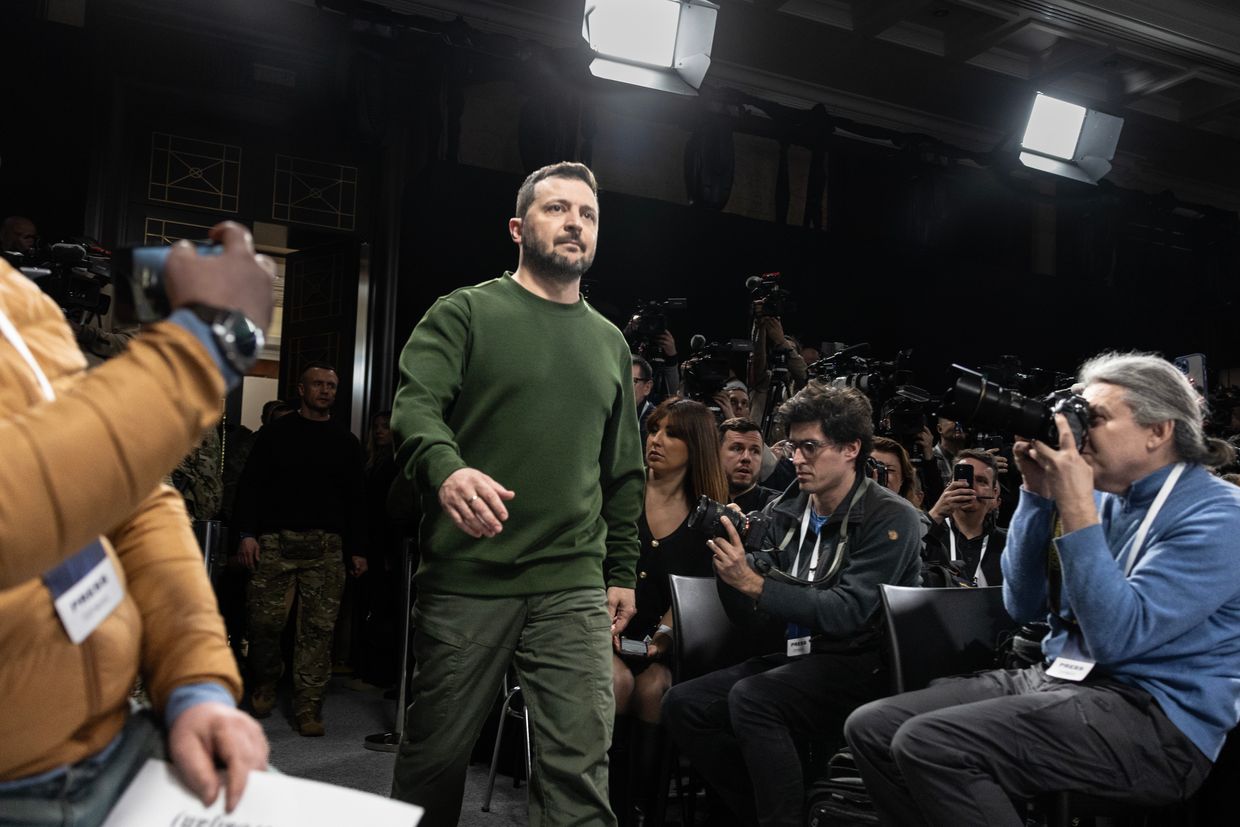Ukrainian journalists meet G7 ambassadors to discuss country's media landscape

Ambassadors of the Group of Seven (G7) countries met with prominent Ukrainian journalists on Dec. 2 for a "valuable exchange" and to discuss "the current media landscape."
"Press freedom and pluralism are crucial for strengthening democracy, supporting political debate, and advancing Ukraine’s Euro-Atlantic path," the G7's representation in Ukraine said on X.
It marked the second such meeting this year, with the G7 envoys meeting Ukrainian journalists in January amid complaints of systematic state pressure on the media community.
Olga Rudenko, editor-in-chief of the Kyiv Independent; Vitalii Sych, editor-in-chief of NV; Andrii Boborykin, executive director of Ukrainska Pravda; Nataliia Lyhachova, director-in-chief of Detector Media; and Mykola Chernotytskyi, the CEO of the Suspilne public broadcaster attended the latest meeting.
Yurii Nikolov, an investigative journalist and co-founder of the Nashi Hroshi project; Nataliia Sedletska, head of the Kyiv bureau of Radio Free Europe/Radio Liberty; and Yevhen Shulhat, an investigative journalist, were also in attendance.
Nikolov and Shulhat themselves experienced pressure from the authorities in two separate cases this year that prompted a backlash from the journalistic community.
Nikolov, who revealed procurement wrongdoing in the Defense Ministry under its previous leadership, received a threatening visit to his home from two unknown men in January. Shulhat was allegedly targeted by military enlistment officers this spring amid his investigation into the family property of Illia Vitiuk, who was then the Security Service of Ukraine (SBU) cybersecurity chief.
Another major scandal revolved around leaked video recordings of non-editorial staff members of the Bihus.Info investigative outlet apparently using drugs during a New Year's party. Bihus.Info later released an investigation that said a department of the SBU installed the hidden cameras and leaked the videos to pressure the outlet.
Despite the subsequent public outcry and pledge by the authorities to rectify the situation, media watchdogs and journalists have continued to point to cases of attempted censorship, political interference, and other forms of pressure.
In one of the latest cases, Ukrainska Pravda said that the Presidential Office was systematically pressuring the outlet in an attempt to influence its editorial policy.
The outlet said that officials were being ordered not to communicate with its journalists, they were being denied access to official events, and businesses were being pressured to cease advertising on the outlet's website and not sponsor the events Ukrainska Pravda organizes.














